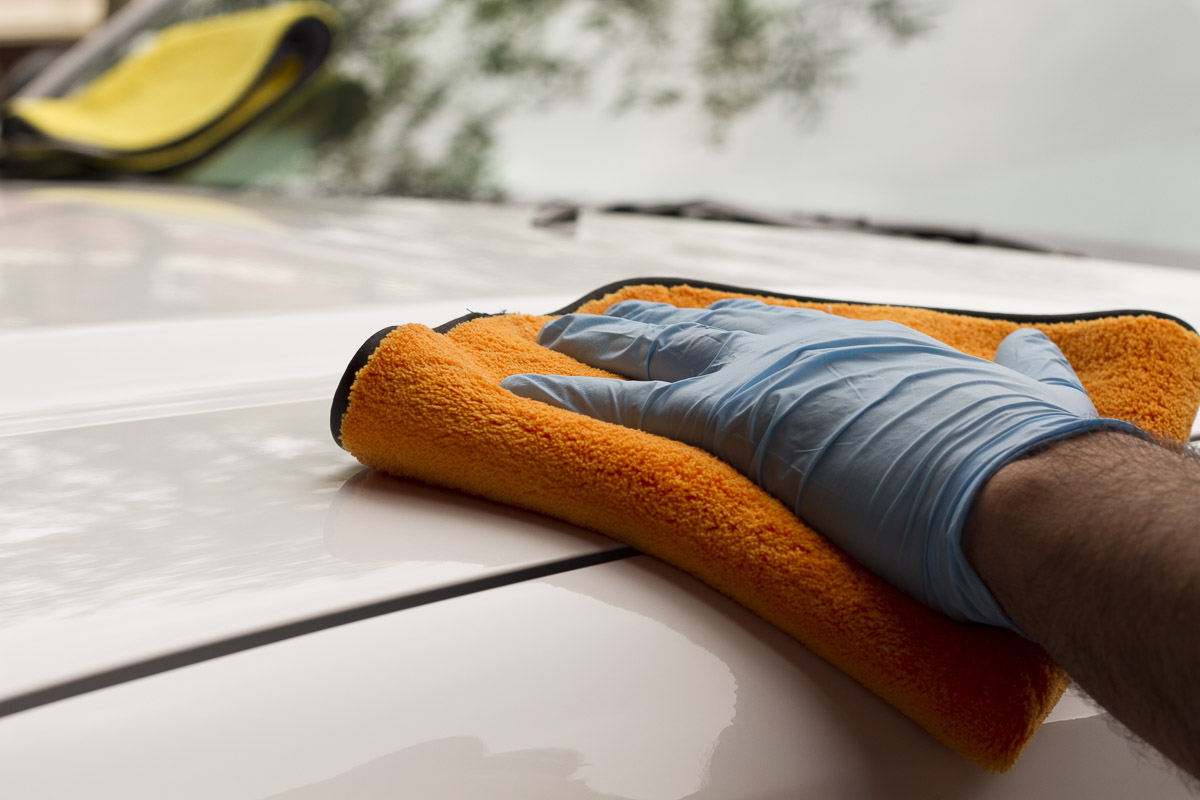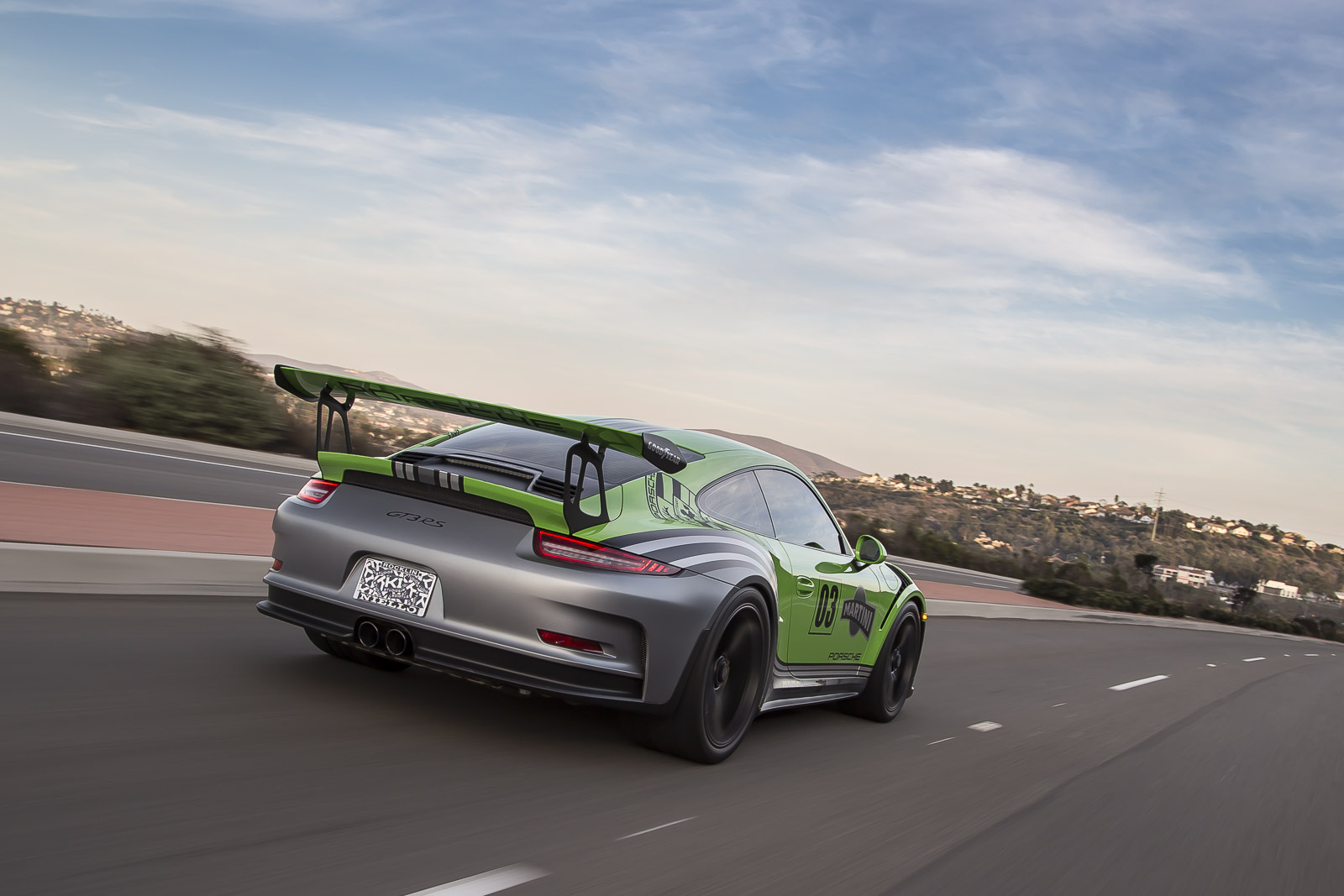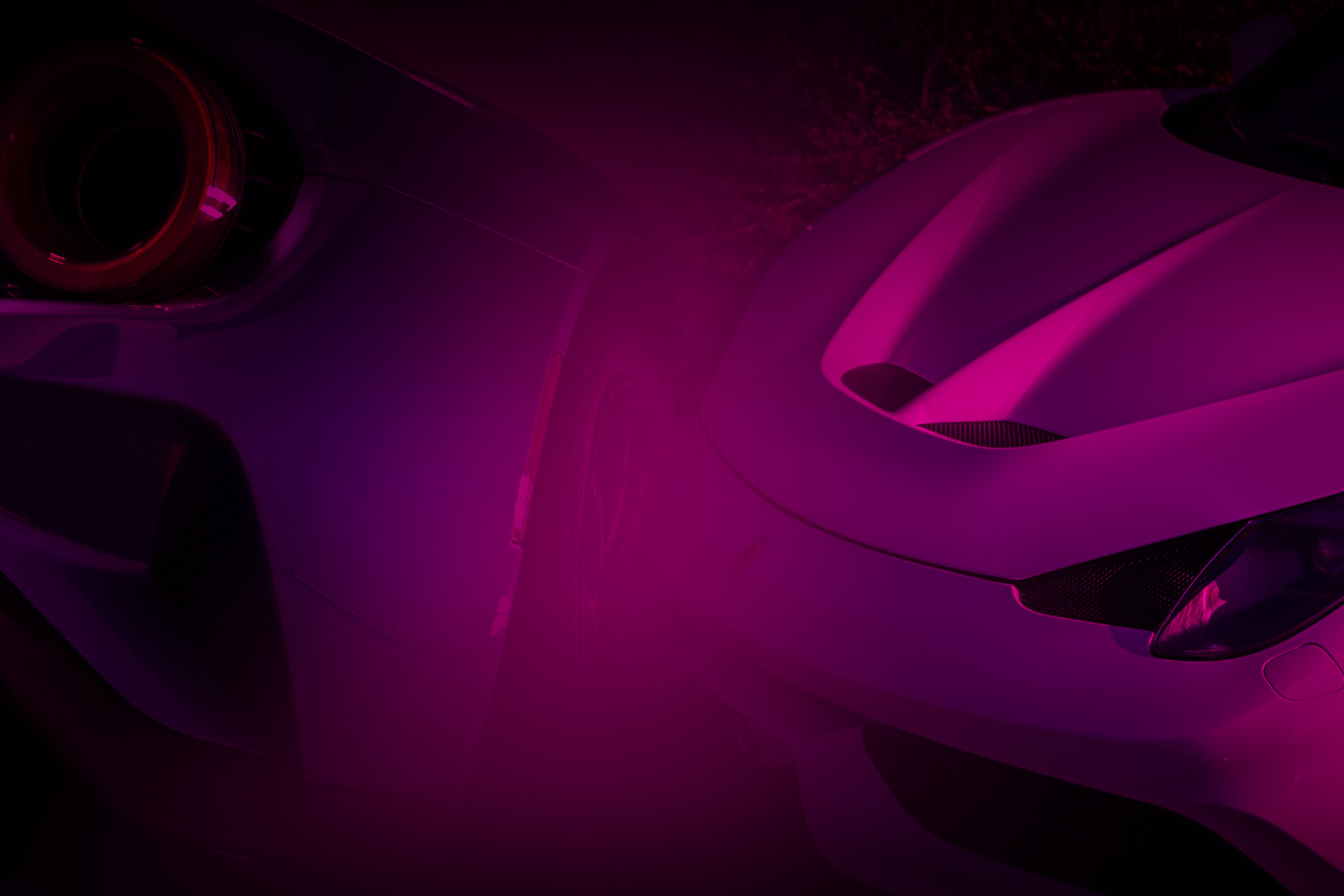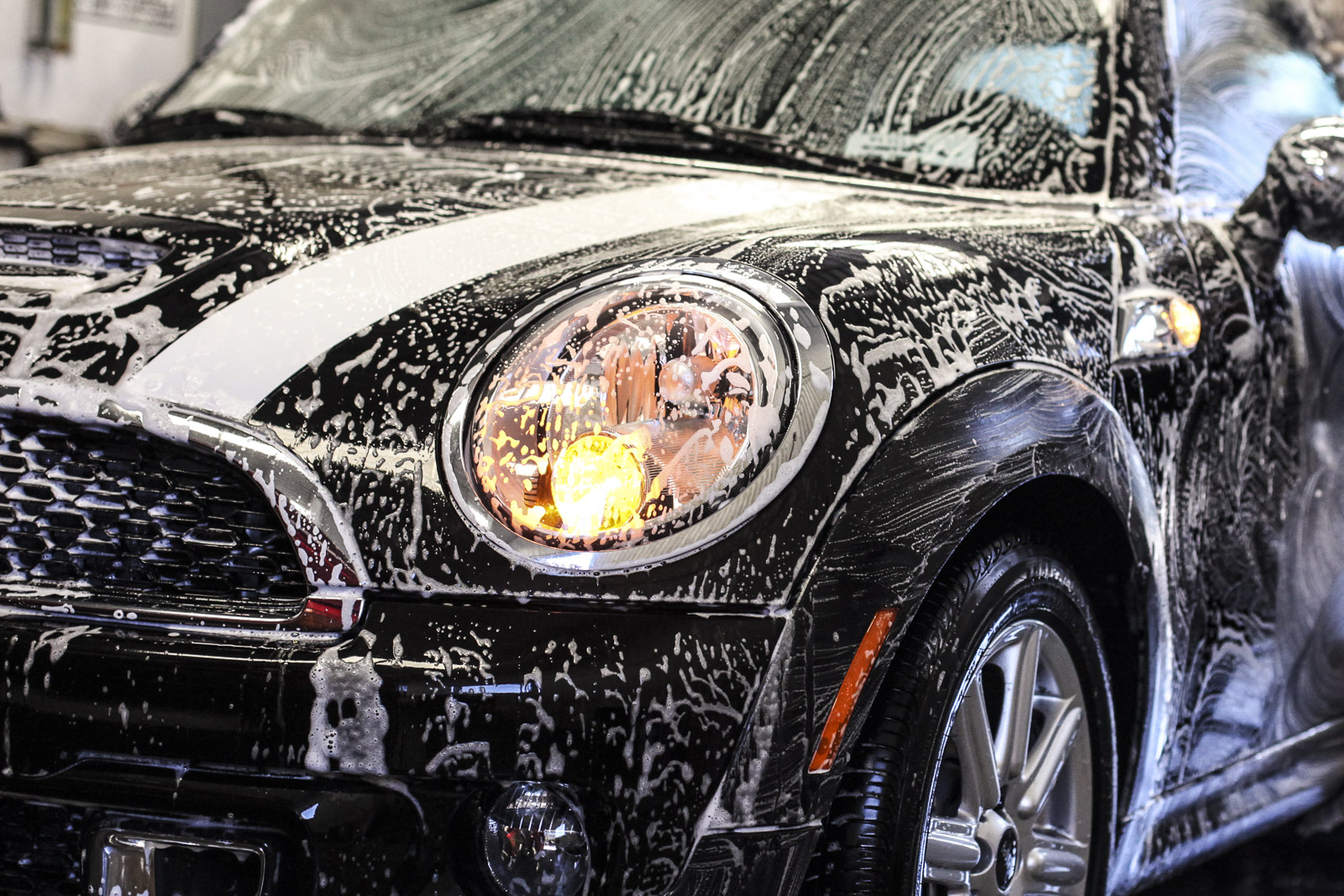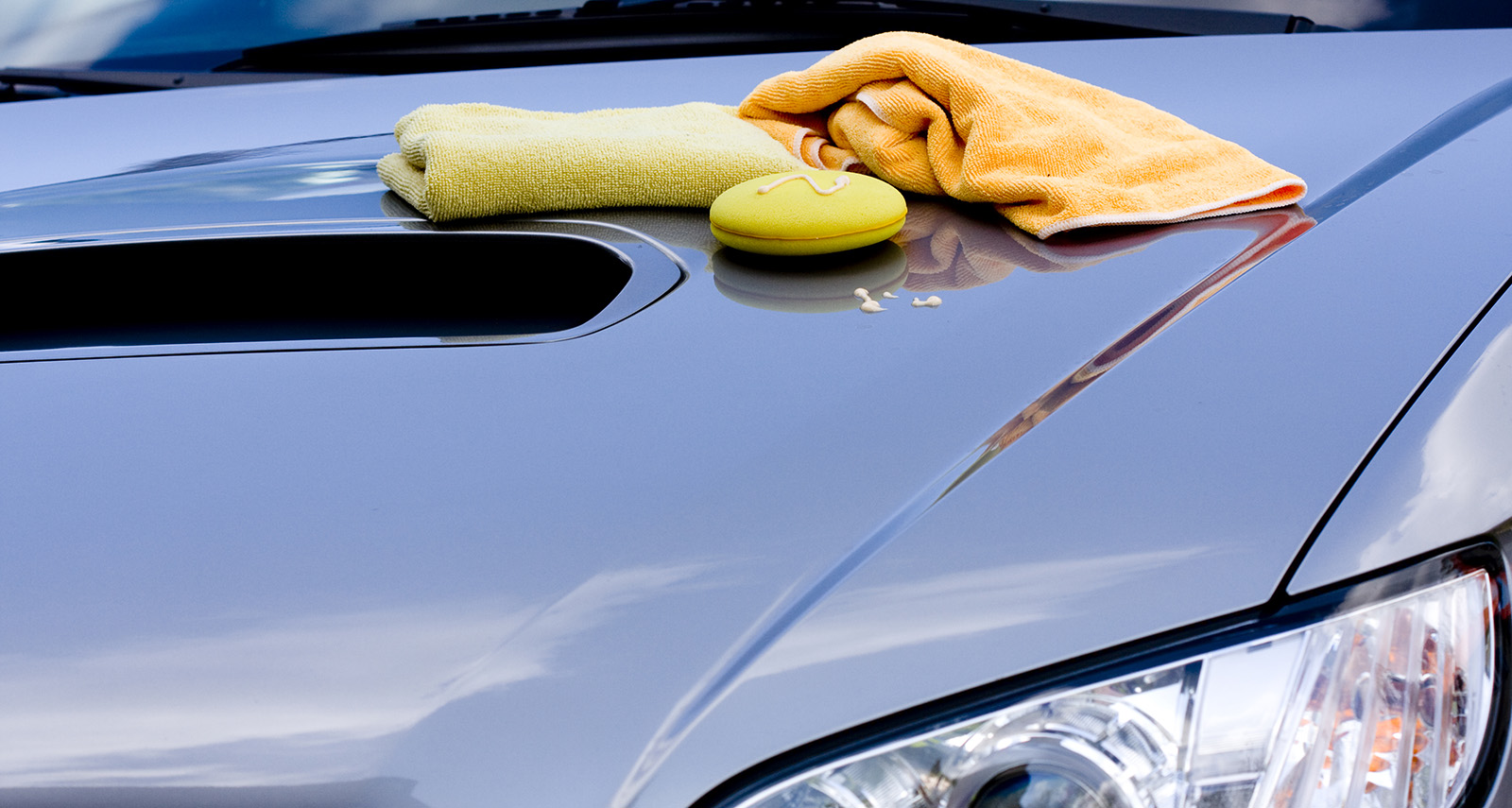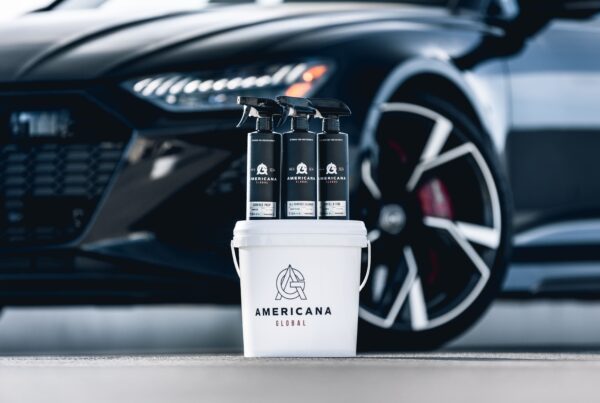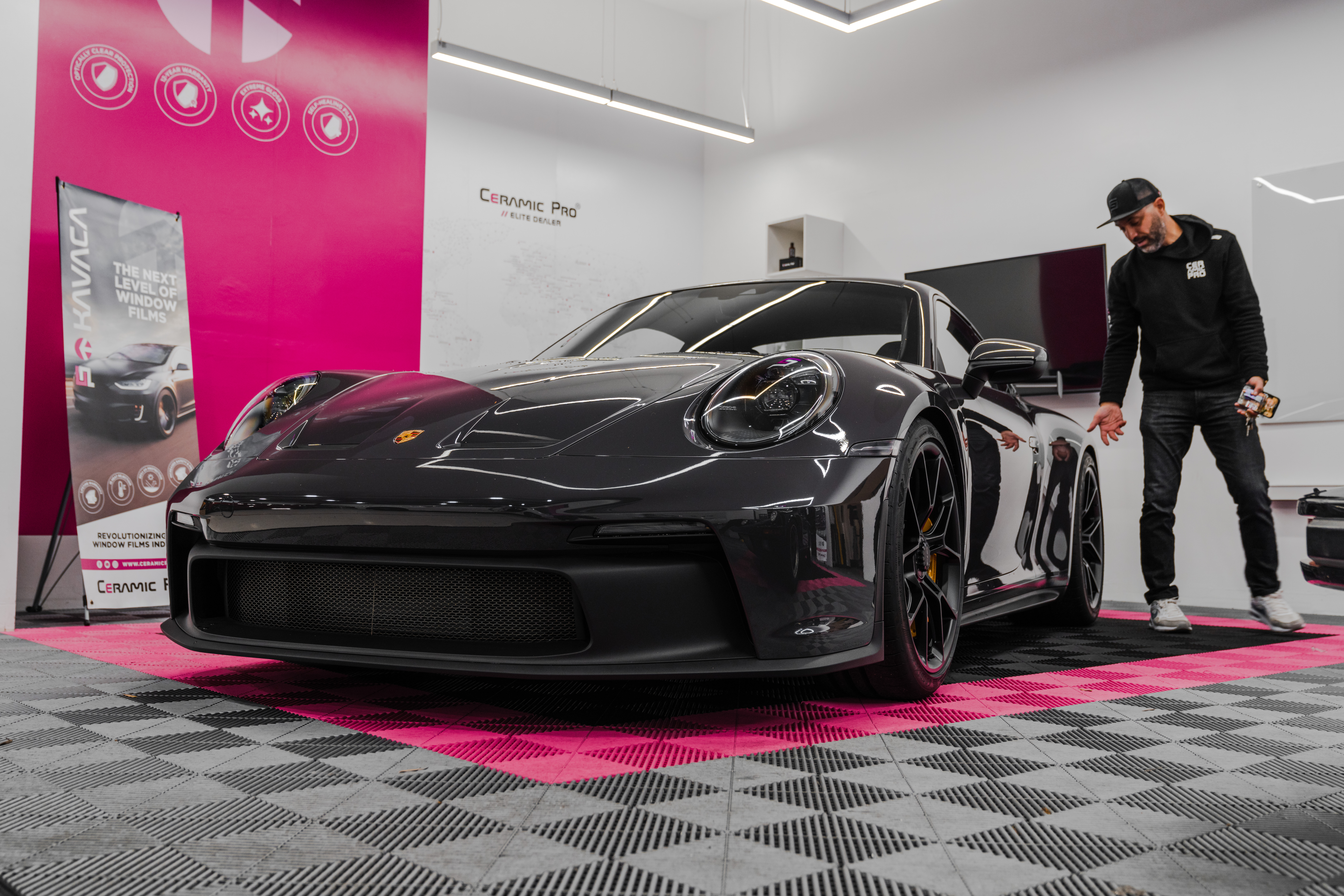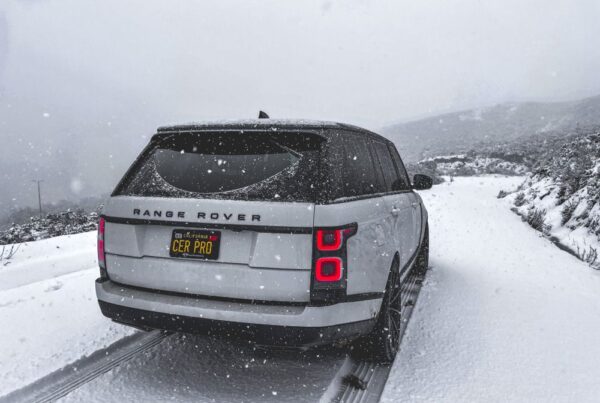How to Wash a Car Wrap – And Maintain It
A car wrap is a modern way of customizing your vehicle. The technology that has allowed car wraps to exist has been around for just a few decades. Only recently has the technology matured enough from to go from commercial use only, to something that is widely used for privately owned cars.
With the advent of car wraps, the technology has introduced new necessary car care methods that differ in ways from paint. This includes learning how to wash a car wrap correctly. And just as important, how to maintain it for years.
Let’s explore some important details why washing a car wrap correctly is vital for durability and longevity. We’ll also explain why applying a high-quality ceramic coating on top of the wrap is a great way to maintain and extend its life expectancy.
What is the Job of a Car Wrap?
The first key point that needs to be understood is that a vinyl car wrap is intended to be temporary. Even if you keep your car wrap on for many years due to taking extremely good care of it, the nature of the wrap is still temporary.
The vinyl used for a vehicle wrap, no matter how good it is, simply is not as robust and durable as a good coat of paint. This doesn’t mean that a vinyl wrap cannot look great for many years. All it takes is proper care and that vehicle wrap can last.
Why Extra Care for a Car Wrap is Essential
Proper care of your vinyl car wrap would allow it to last much longer than it otherwise would. Furthermore, there is such a thing as proper care and beyond that, extra care. That little extra can add a few more years to your vehicle wrap appearance.
The surface of the vinyl in a car wrap is much like a plastic. If you consider that many modern paints use some type of urethane base, then you could aptly call paint a type of plastic as well. Just to be clear, whether it’s gloss or matte in appearance, urethane and polyurethane are not actually plastics but rather flexible polymer molecules better described as an elastomer.
Regardless, the qualities that cause paint to be more prone to scratching than a harder surface like glass, are more evident in vinyl.
The Difference Between a Vinyl Wrap and Car Paint
The main difference is that the surface of the vinyl wrap is going to be a lot softer than that of paint. This means that vinyl can be more easily damaged or scratched. It’s a lot easier to put many fine scratches and swirls into vinyl than it is to do the same thing with paint. Then you get into the amazing technology infused in paint protection film – which elevates a normal car wrap to a higher level. In fact, you can learn the truth about paint protection film – an advanced car wrap with Instant Healing abilities.
The softer nature of vehicle graphic materials means that two crucial points necessary to care for the surface need to be emphatically performed. These are the same two points needed for car paint protection, the only difference is that it’s way more important over vinyl.
Those two points are surface protection and the second, washing or cleaning.
If You Have a Car Wrap - You SHOULD PROTECT IT Request a FREE QUOTE TODAY!
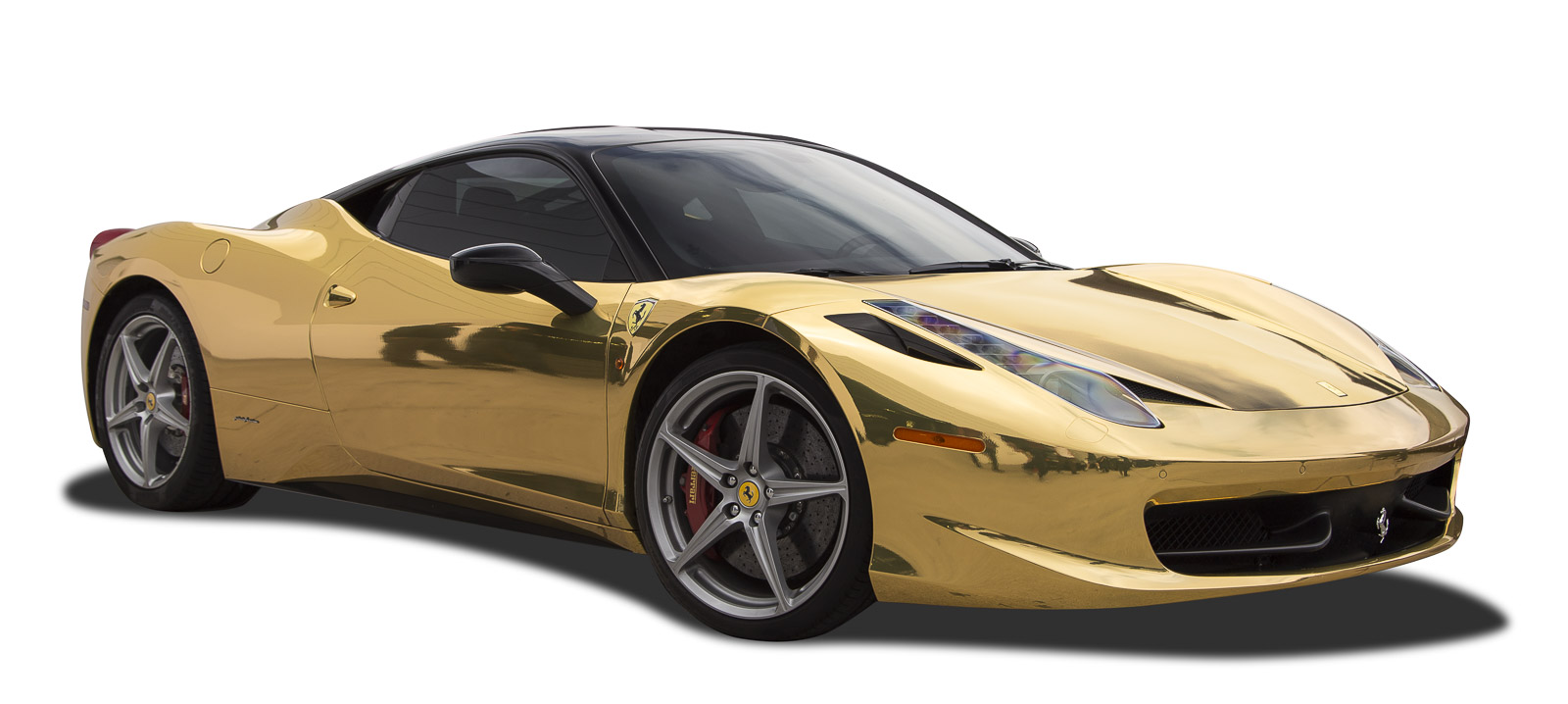
Car Wrap Vinyl Surface Protection
Let’s start with the protection of the vinyl surface first. The reason I start here is because this important consideration for the care of a wrap should be planned even before you get a wrap on the car. This will be the basis of your plan to maintain your new car wrap.
What surface protection refers to is what you intend to coat your wrap with to aid in protecting, cleaning, and maintaining it.
You need some sort of surface coating if you expect to protect the wrap from everyday contaminants, light surface scratching and even your wash mitt. Just like paint, a slick surface is a lot easier to wash. Consequently, a surface that’s a lot easier to wash with clean water is a lot harder to scratch.
Now, of course, I may be biased. You’re reading this on a site called Ceramic Pro, where our thing is ceramic coatings. You would be right to expect that we will be recommending a ceramic coating for your car wrap or vehicle graphic materials. But I intend to paint a complete picture for you regardless, in to keep this article as editorial as possible.
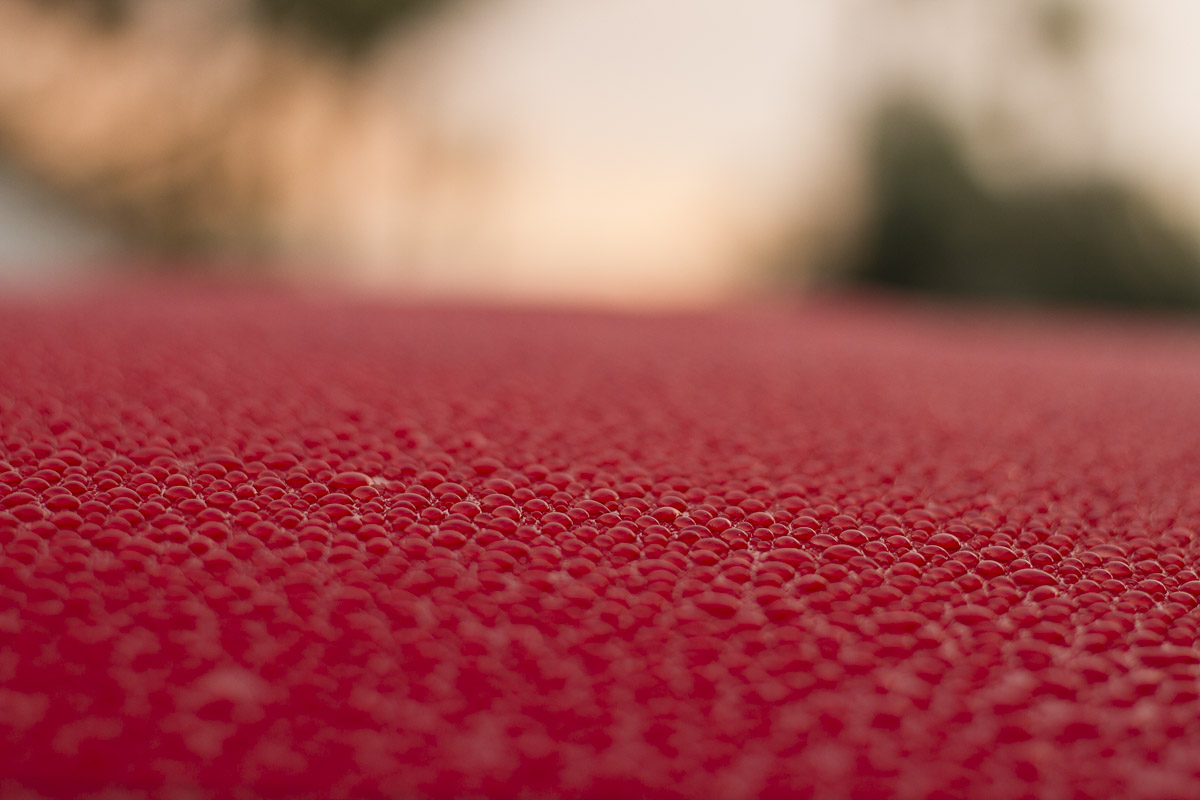
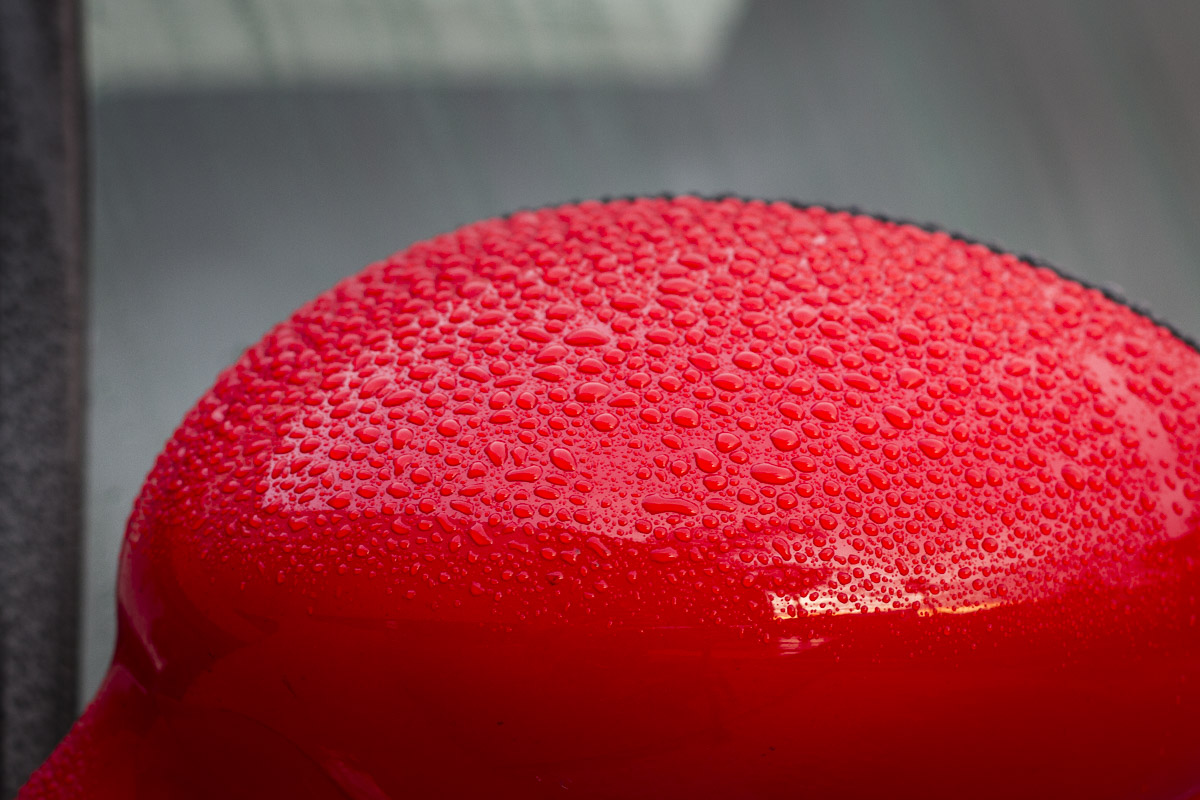
Tips for Washing a Car Wrap
The second important point when it comes to caring for a car wrap is how you are going to clean it. A car wrap does change things a bit with washing methods as compared to paint. First, here are a few important details to remember.
- Never take your car to automated car washes.
- Don’t wash with isopropyl alcohol.
- Don’t use a spray nozzle that is designed for removing paint on a house or stains from concrete.
- If pressure washing, always use the lowest setting.
- Always use mild detergent automotive specific shampoos.
- Always use a clean microfiber cloth to detail small areas.
- Take your time removing stubborn contaminants. Rushing can damage the vehicle wrapping material.
These details are vital if you’re not currently employing a strict professional detailing type of wash method on vehicle vinyl substances.
If you are a dedicated car enthusiast that uses the two-bucket method of washing, then just keep doing what you’re doing for the car wrap too and you’ll be fine.
However, if you are a little less refined when it comes to car care and every so often run your car through an automatic car wash, then you might want to improve your car care methods.
Why Automatic Car Washes and Car Wraps Don’t Mix
This is a highly debated topic and many claims that with a ceramic coating from Ceramic Pro you can get away with automatic car washes because the surface is hard to scratch. I still wouldn’t recommend automatic car washes, though that is the dedicated paint protection and detailer in me speaking. It’s not even good for those with a regular paint job and no protective coating or wraps.
Now when it comes to car wraps, I REALLY DON’T RECOMMEND using automatic car washes. This applies whether you are using the most robust Ceramic Pro coating or a simple car wax. The reason for this is that no matter what you use to protect the top layer of that vinyl, the car wrap is still something that’s merely stuck to your car with adhesive.
The high-pressure water jets in an automatic car wash combined with the fast-moving mechanical brushes can often be enough to lift and pull off corners of a car wrap. No level of surface coatings for a car wrap can help you with that.
For this reason, it is always recommended to hand wash your car. If you use a pressure washer, be sure to keep it far away from the vinyl. Get too close and you risk lifting a corner or breaking the layer of vinyl altogether if the pressure it too high.
Wash a Car Wrap Using the Two Bucket Method
The same methods used to care for paint are recommend. Use two buckets, one for suds which is your clean bucket, and one to rinse off the wash mitt or sponge right after touching the car and BEFORE that mitt goes back into the suds bucket.
This will keep abrasive contaminants like dirt particles from marring your finish. While it is much harder to scratch a ceramic coating, you can still do it if you are careless enough. By employing the correct washing method, you can mitigate this risk and maintain a scratch-free car wrap finish for years.
I also recommend washing, or at least quick detailing, a wrapped car more often than a painted car. This is so that contaminants do not remain on the surface as long. This is important for proper care of any Ceramic Pro coated surface, but it’s essential on a non-coating or simply waxed surface. Remember, a vinyl surface is much more prone to staining than a painted surface is.
Can You Apply Car Wax to a Car Wrap?
Once the wrap is fresh and clean, it’s important to consider using a quality paint protection product to maintain and protect the wrap. Many car owners ask about using car wax with a vinyl wrap. You could most certainly take the traditional approach and apply good old carnauba wax over the wrap.
If you want to go a little more modern, a quality synthetic wax or paint sealant is another popular option for protecting a wrapped vehicle. Both of those methods can be rather inexpensive and can be applied by yourself at home in your garage.
While waxes do look good, the downside is they offer no protection against surface scratches. They do protect a little bit from some contaminants like bug splatter, tree sap, bird droppings, pollen, and other difficult stains.
However, it’s important to remove those materials with a waterless wash, a vinyl-specific cleaning solution, and microfiber cloth quickly. This helps to reduce staining on your vinyl vehicle wrap. If left on for too long, meaning more than a day, those acidic contaminants will eat right through the wax or paint sealant and tarnish your vinyl forever.
Keep in mind that vinyl film is a LOT more porous than paint. This means a gloss wrap or matte wrap will absorb contaminants way more than paint will. This is true whether the surface has wax or not.
The only scratch protection that a car wax or sealant can provide is when washing. If you have fresh coat of wax on there, the washing process needed is less aggressive, so you end up with less swirl marks. The problem with waxes and most sealants is that they are not durable and as soon as that coat starts to wear off, contaminants start attacking that vinyl.
And the problem is that it isn’t either on or off. The problem is that during the first week of your wax application, the surface is nice and slick, but by week two, some of it has worn off already and little by little your wrap begins getting exposed to the elements and taking on damage.
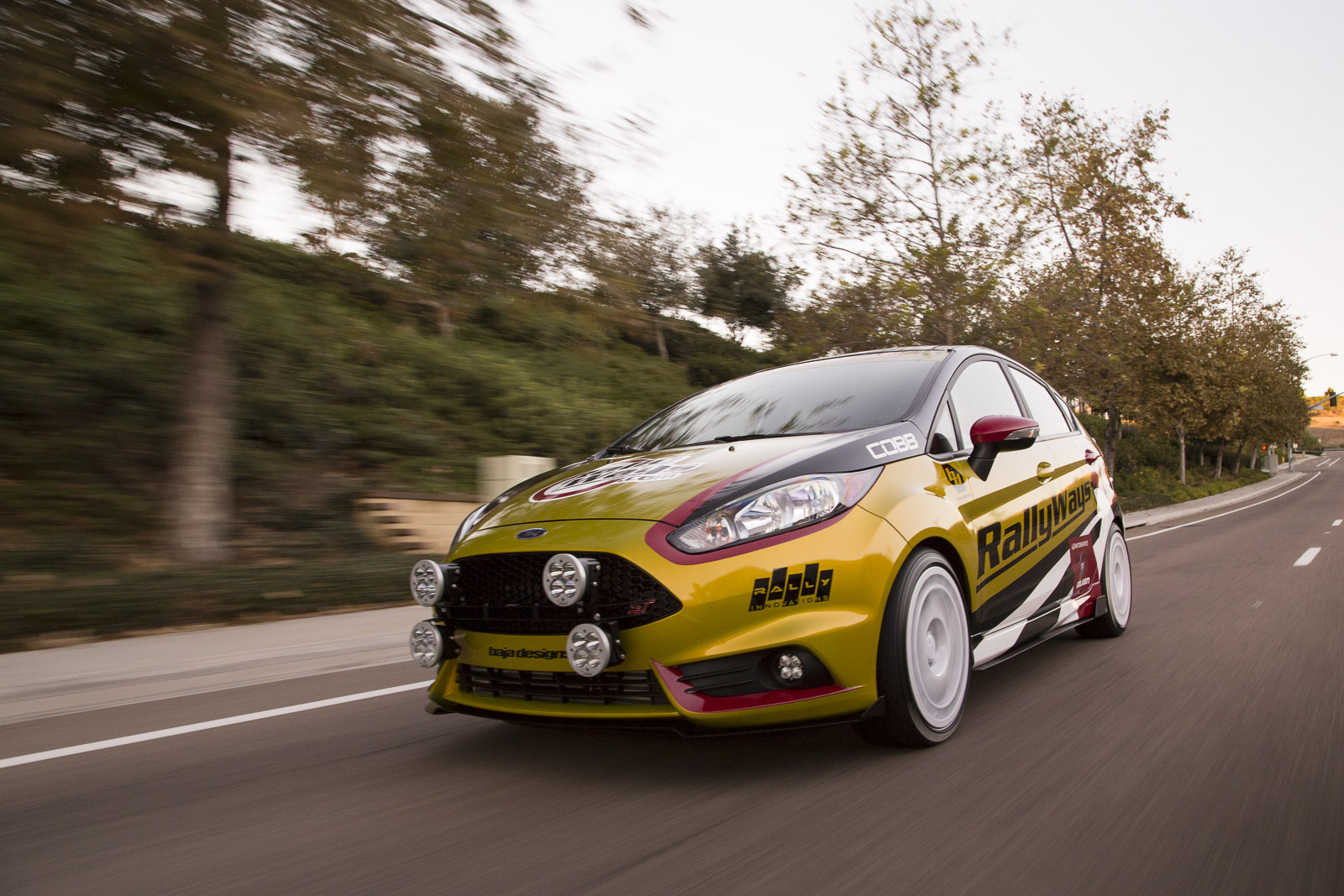
Why a Ceramic Coat on Your Car Wrap?
A ceramic coating by Ceramic Pro is as modern as your car wrap technology. It might sound cliché but putting a traditional organic product such as wax over a much more technologically advanced product such a wrapping film is simply not your best option.
The thing with a ceramic coating is that it’s better for the long-term protection and maintenance of your car wrap in every single way possible. It is not like wax wins at some things. No, a ceramic coating completely obliterates any benefits of waxing your car wrap.
What Makes Ceramic Pro 9H the Best Ceramic Coat for Vinyl
A Ceramic Pro 9H coating is based on nano-technology. The ceramic coating will infuse the vinyl wrap as if all the pores were microscopic anchor points for the coating to merge with. Even without as many of those tiny pores, Ceramic Pro still bonds with the surface permanently.
Vinyl needs this even more than paint does given vinyl is less dense and simply extensively more porous than paint. This is due to the molecular nature of the polymers that make up vinyl and to the all the stretching of the material during manufacturing and furthermore, during installation.
What this means to you is that by having your car wrap coated with a professional ceramic coating like Ceramic Pro, your wrap will be protected for as long as you keep it. It will be less susceptible to surface scratches, way more tolerant of UV rays, shielded from road contaminants and much easier to keep clean. It will also help cut car wash time.
Additionally, since Ceramic Pro understands the difference in molecular composition of surfaces, we have a formula specifically created to permanently bond with car wrapping vinyl. The formula is Ceramic Pro PPF and Vinyl.
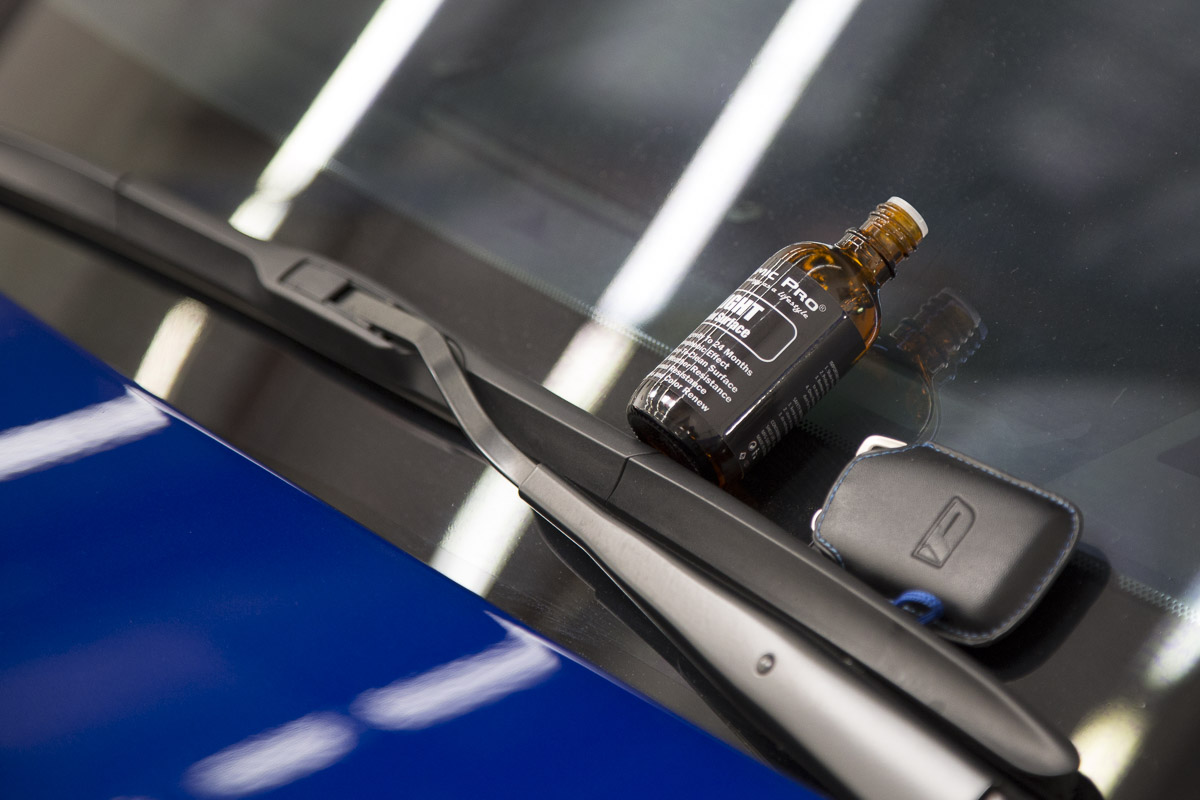
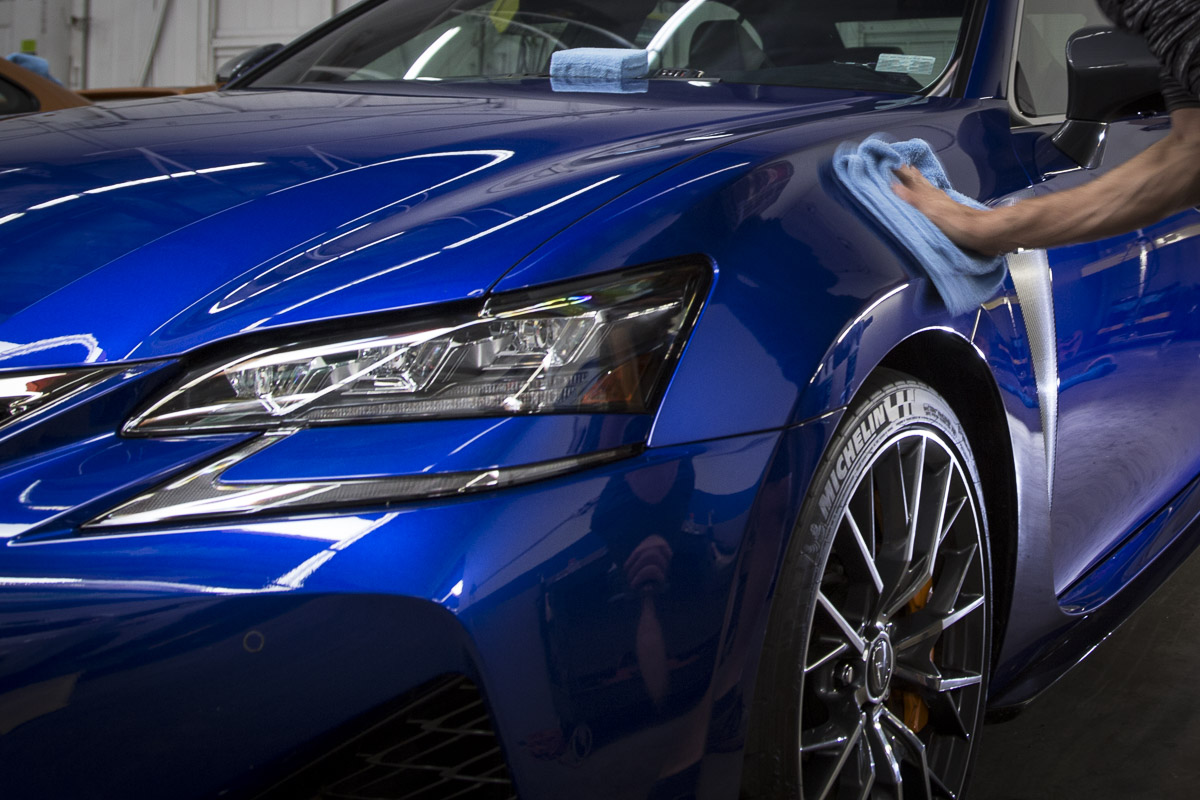
Why It’s Important to Protect Vinyl Wraps
This is good news not just for private vehicles but also for fleet vehicles. Remember, car wraps began in the commercial industry. If you have a fleet of 20 vehicles wrapped, you would like those wraps to look good for a few years and not need re-wrapping any time soon. These are vehicles that are driven daily and often live outside, never garaged.
If a ceramic coat can extend the life of those 20 wraps by a few years, just think of the money that something like this could save your company. It would pay for the cost of the Ceramic Pro coating, and still save your business money in the long run.
Some solid color cast vinyl wraps can be polished with some of the same compounds used to polish paint. That said, this is NOT recommended for calendared vinyl’s or printed wraps. I advise you not to try and polish your car wrap unless you really know the difference between this type of vinyl’s, or you risk damaging your wrap permanently.
Also keep in mind that in multi-colored layered wraps there could be a combination of all three of these. For example, if you look at my wrapped Ford Fiesta ST below, it uses a combination of solid-cast vinyl layers, as well as some printed layers and even small bits of less-expensive calendared vinyl.
Some other things to point out with regards to maintaining a wrapped car go beyond the subject of cleaning it.
- Whenever possible, park your car in the shade. The constant beating of the sun is bad enough on paint and much harsher on vinyl. Protected or not.
- Garaging your car is of course one of the best things you can do to protect your car wrap. I understand this isn’t always possible.
- On ceramic coated car wraps it’s a good idea to use a product such as Ceramic Pro After Care to help refresh the top surface of the ceramic coating. The better care you take of the ceramic coating, the better it can protect the vinyl below.
Also keep in mind that much of what is said in this article also pertains to vehicles wrapped with PPF paint protection film. While paint protection film like KAVACA PPF is many times more durable than car wrap film, it benefits greatly from a ceramic coating.
If you take KAVACA as an example, it already arrives with a factory ceramic coating. It can be further enhanced with additional layers of Ceramic Pro in much the same way Ceramic Pro can be layered on paint.
The proper care of car wrap film boils down to how you coat it and how you clean it. If you choose the best and most durable coating methods such as Ceramic Pro and combine that with a dedicated cleaning schedule, your car wraps will last for many years. This will not only save you or your company money, but it will also save you time.
